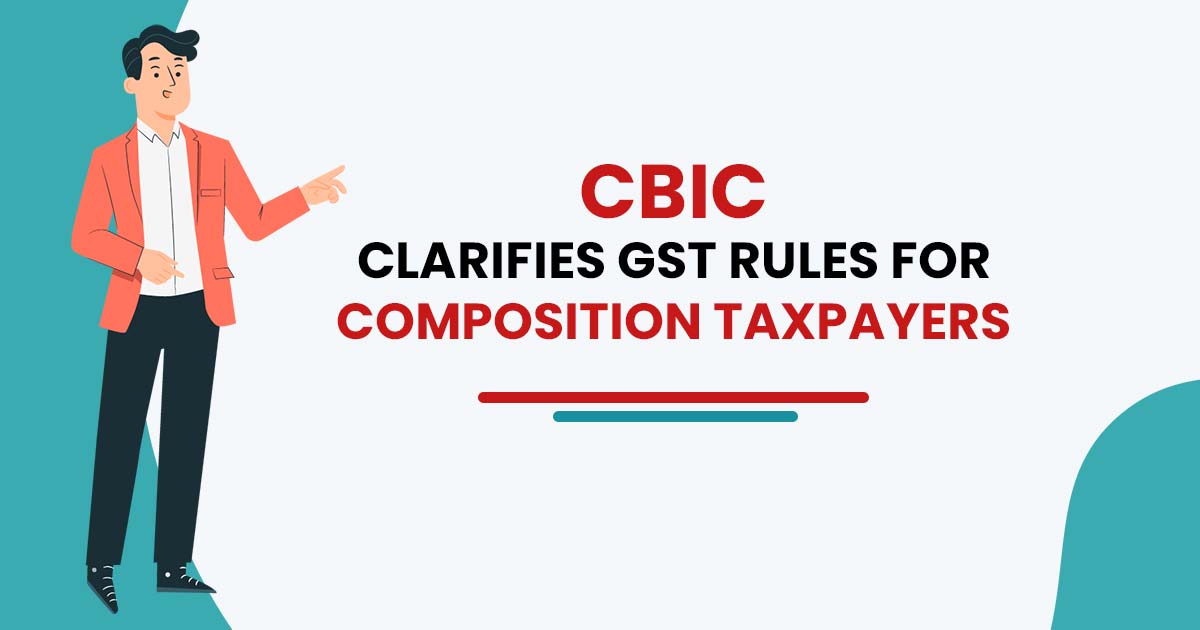
A person who is registered as a composition taxpayer cannot generate taxable invoices, collect GST from consumers, or claim ITC on purchases, according to the Central Board of Indirect Taxes and Customs (CBIC).
The explanation came in response to a popular video showing a restaurant tricking patrons even though it was a composition taxpayer under the Goods and Services Tax (GST) regulations.
The CBIC reacted to the video that Mohandas Pai, the former director of Infosys, published by stating that the composition taxpayer cannot submit taxable invoices.
“As per GST law, a person registered as a composition taxpayer cannot issue taxable invoice and can neither collect GST from his customers nor can claim the input tax credit on his purchases. The fact as to whether a person is a regular taxpayer or a composition taxpayer can be verified on the GST portal under “Search Taxpayer” -> “Search by GSTIN/PAN” tab under the heading “Taxpayer Type”,” the CBIC stated.
For that, the board has provided the URL.
Simple to Understand Composition Scheme Under GST
For taxpayers, the GST Composition System is a straightforward and uncomplicated option. Small taxpayers can avoid time-consuming GST procedures by paying GST at a certain percentage of turnover instead. Every taxpayer with a turnover of less than Rs. 1.5 crore may choose this scheme.
A taxpayer who has less than Rs 1.5 crore in annual revenue may choose the composition scheme. The cap has been raised to Rs. 75 lacks for Himachal Pradesh and the North-Eastern states. A composition dealer is also permitted to provide services under the CGST (Amendment) Act, 2018, up to 10% of turnover or Rs. 5 lakhs, whichever is greater. This modification has effected on February 1st, 2019. Also, the GST Council suggested raising this cap for service providers on January 10, 2019, during its 32nd meeting. Turnover should be calculated taking into account all firms registered with the same PAN.